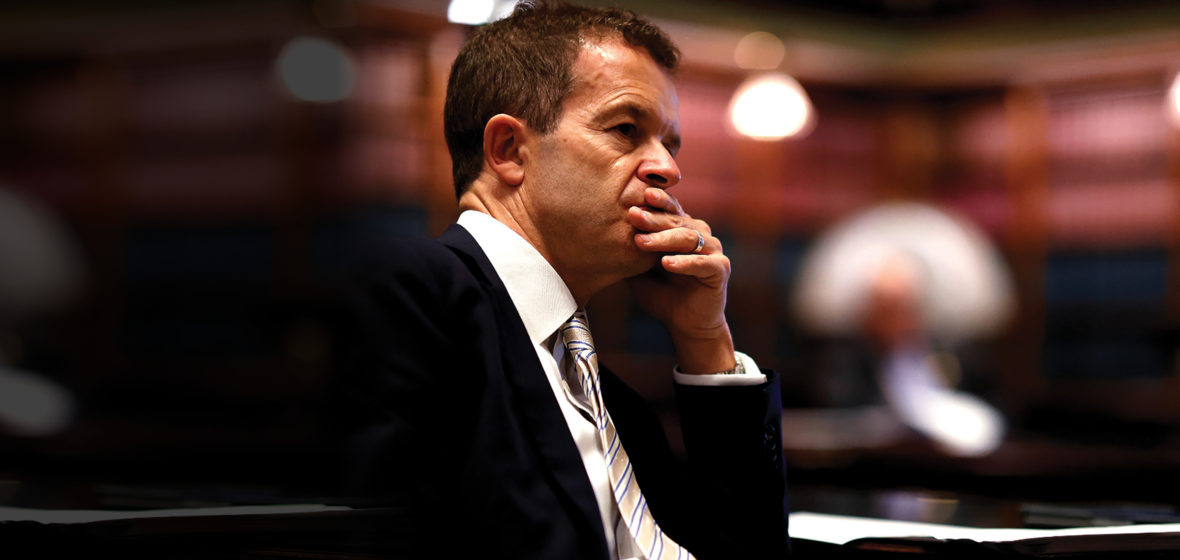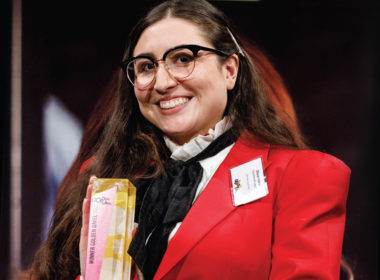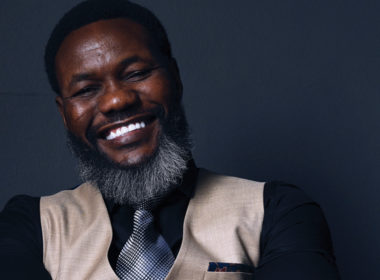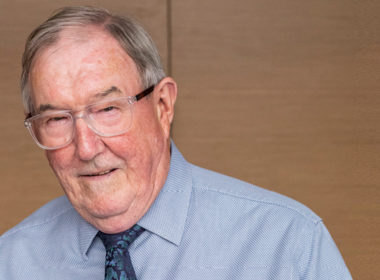The NSW Attorney-General and Minister for Prevention of Domestic and Sexual Violence joins LSJ for a virtual lunch break during lockdown.
Mark Speakman is sporting slight curls about his chin when he appears on my screen for a video interview in July, amid Sydney’s COVID-19 spike. It’s a foreign look for the usually clean-shaven Attorney-General and Minister for Prevention of Domestic and Sexual Violence. Comforting, I note, that even the state’s senior cabinet ministers might let themselves go a bit when working from home in lockdown.
“Well, there are no barber shops open, so it’s going to have to be a beard for a while!” he laughs.
To be fair, a haircut and a shave are probably near the bottom of the lengthy to-do list the Member for Cronulla has accumulated in recent months.
Before lockdown, his office was frenetically announcing a raft of new funding and justice initiatives related to his double portfolios in the 2021 Budget. Most of the measures aim to reduce the chronic backlog of criminal cases in the Local Court, as well as offering more resources to swamped domestic and family violence services.
He has also been shepherding leaders in government, law, policing and the not-for-profit sector to re-frame definitions of domestic violence and broaden the scope of the law to deal with coercive control. He wants NSW to consider changing the definition of consent in sexual assault laws, after a tide of community anger following a 2018 Four Corners interview with victim Saxon Mullins asked for it, but a review by the NSW Law Reform Commission was inconclusive.
There are updates coming, he tells me, on a private member’s bill set to be introduced to NSW parliament about religious freedom. We may even see discussion of voluntary assisted dying laws – a topic that has so far been fiercely contentious in legal and medical circles.
“There is a lot of contentious law reform [coming] in the next few months,” he says.
Our video call is itself a sign of pioneering times. Speakman might usually offer up quotes from a café in Sydney’s bustling legal district, as he dashes between his office at 52 Martin Place and Parliament House. Or, if we were meeting in his electorate of Cronulla, we might hit restaurant 1908 – a favourite of Speakman’s for its modern Australian menu and history as an old Methodist church, later the Shire library, which was built in 1908. Having grown up in Sydney’s Sutherland Shire and been school captain at local public school Caringbah High, Speakman takes seriously his ongoing education in the local dining scene.
“You do have to do a lot of groundwork [in politics] to bring people across and you have to persuade them. It’s different from persuading people in court, where you can be confident that a judge has heard your submissions, read your submissions, checked out the footnotes.”
When the Delta variant of COVID-19 struck Sydney in June, however, Speakman commandeered a rapid pivot for NSW courts using many of the lessons the legal profession had gained in last year’s lockdown. Virtual courts were immediately ordered back. Remote witnessing of documents via video technology – which was not a legal method before 2020 – continued, thanks to a niche legal regulation Speakman made last year.
His workday schedule, like the rest of Sydney’s, was also forced to adapt. On a pre-COVID day Speakman would be working from his city office at 52 Martin Place or hitting the gym at 5.30am before taking his seat on the tea-green front bench of state parliament. With parliament and gyms closed, however, plus office workers legally obligated to work remotely, his new schedule dictates he work solo from his unstaffed electorate office in Cronulla and opt for an afternoon run between meetings instead.
“It doesn’t necessarily free up the diary – it changes the diary,” he says. “But it’s also been good to have a bit of reading time on some of the controversial stuff that’s going to come up in the next few months … One of the great challenges in this job is that the urgent often overtakes the important.”
One important project Speakman has been chipping away at since 2019 is the multi-stage review of national defamation laws that saw NSW update its laws this year for the first time since 2005. Hauling other states along for the sake of nationwide uniformity has been a major challenge: QLD, the ACT, Victoria and South Australia have joined the bandwagon so far.
On this point, Speakman notes that politics involves a lot more behind-the-scenes sweat than he initially guessed when he was elected in 2011. He had previously been a partner at top-tier firm Blake Dawson Waldron (now Ashurst) and a senior counsel at the NSW Bar, before launching two unsuccessful runs at Liberal pre-selection in the federal seat of Cook, including in 2007 when it was snatched up by now-Prime Minister Scott Morrison. (He deflects when I query whether he would consider a third go at Canberra if, for example, a certain politician went missing in Hawaii for weeks: “you never say never to federal politics, but I can’t see it happening”.)
“You do have to do a lot of groundwork [in politics] to bring people across and you have to persuade them,” he says.
“It’s different from persuading people in court, where you can be confident that a judge has heard your submissions, read your submissions, checked out the footnotes. You can’t be confident that colleagues and more importantly, the media – Law Society Journal excluded, of course – won’t cherry pick bits and pieces rather looking at the whole context.”
Without cherry picking, Speakman’s broad legacy is shaping up to be relatively progressive for a conservative government minister. I speculate his years as a lawyer encouraged an appetite for meaty legal debate. Speakman says it’s at least partially a product of his career in the courtroom.
“Lawyers get it. Lawyers get that you act on evidence,” he says.
“I hope that in public discourse about justice, particularly criminal justice, that we more and more base our policies on evidence.
“There are plenty of initiatives that I hope will be taken in the criminal justice space that might seem counterintuitive to some commentators. But if they cause people to be less likely to reoffend – even if they might be soft to some people – then they are actually making the community safer.”




